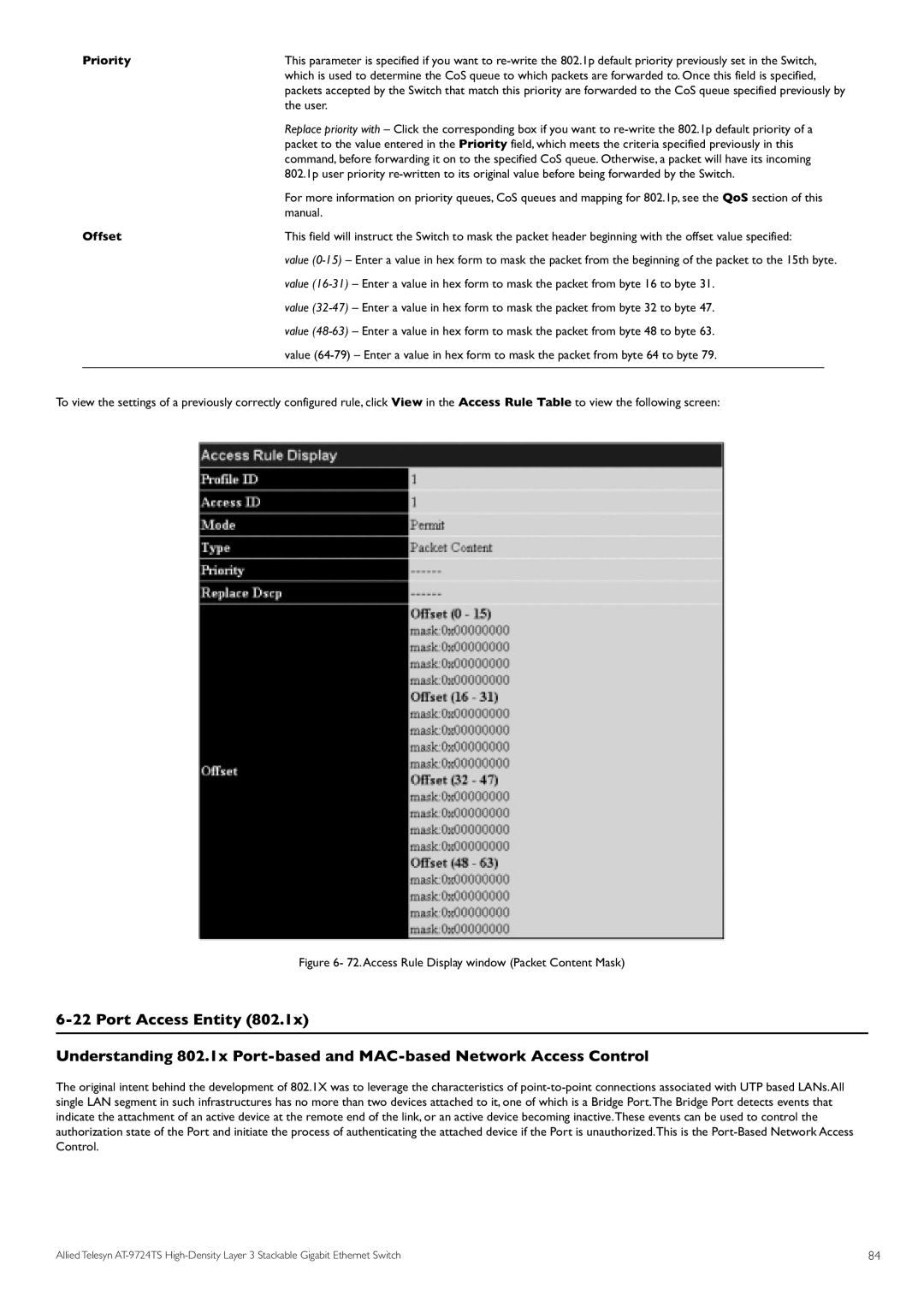
Priority
Offset
This parameter is specified if you want to
Replace priority with – Click the corresponding box if you want to
For more information on priority queues, CoS queues and mapping for 802.1p, see the QoS section of this manual.
This field will instruct the Switch to mask the packet header beginning with the offset value specified:
value
value
To view the settings of a previously correctly configured rule, click View in the Access Rule Table to view the following screen:
Figure 6- 72.Access Rule Display window (Packet Content Mask)
Understanding 802.1x
The original intent behind the development of 802.1X was to leverage the characteristics of
Allied Telesyn | 84 |
